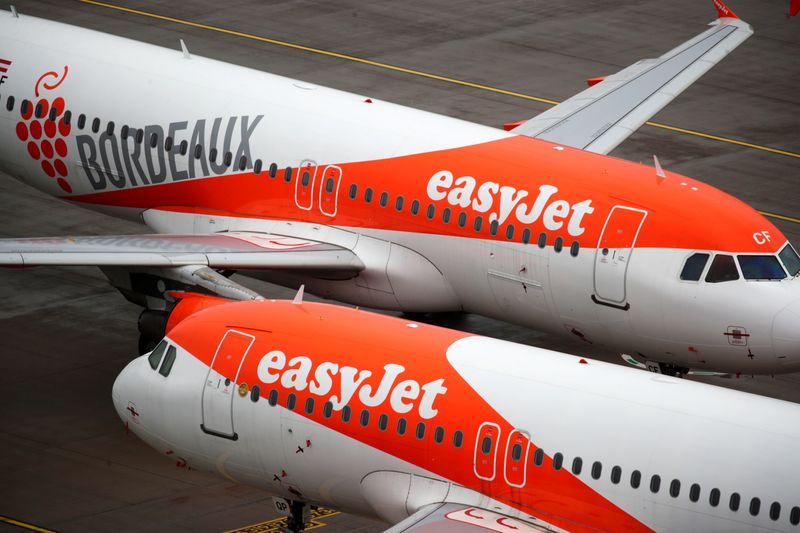LONDON (Reuters) – EasyJet plunged to a 1.27 billion pound loss in the 12 months to the end of September, showing the extent of the impact of the pandemic on the British low-cost airline which had never before made an annual loss in its 25 year history.
With travel at anaemic levels during the second wave of the virus in Europe, easyJet (LON:EZJ) said quarterly cash burn, a key metric watched by investors keen to see costs reduced, improved to 651 million pounds from 774 million pounds in the previous period.
EasyJet also said on Tuesday that after talks with the Bank of England and the UK government’s finance ministry, it will extend its borrowing under a COVID Corporate Finance Facility, staggering repayments and relieving pressure on its balance sheet.
The airline has repeatedly said it is keeping its liquidity position under review as the outlook for travel has worsened.
The reported annual loss before tax of 1.27 billion pounds compared to the 430 million pounds profit it made in the previous year. On a headline basis, it made a loss of 835 million pounds, in line with an October forecast.
It is currently flying around 20% of planned capacity and said short-term uncertainty was such that it could not provide any financial guidance.
To survive the pandemic so far, the airline has raised over 1 billion pounds from sale and leaseback deals for its aircraft, taken a 600 million pound loan from the government, cut 4,500 jobs, and tapped shareholders for 419 million pounds, and has said it could need to do more.
